From one generation to the next, Palestinians aim to keep the history of al-Nakba alive
Mohammad Zarqa trembled with fear as he watched panicked crowds of people, screaming and covered in blood, rush into his small village on the outskirts of Jerusalem.
“You have to run,” he remembers a woman crying out, shocking Zarqa out of a daze and sending him racing home to warn his family. He was only 12 years old at the time, unaware of the looming war that would soon upend his life.
It was April 9, 1948, and Jewish militias had just attacked Deir Yassin, a village about a mile northeast of Zarqa’s home in Ein Karem in what was then the British Mandate of Palestine. At least 100 people, including women and children, were killed – many stripped, lined up and shot with automatic fire, according to reports from the time archived by the United Nations.
The massacre is among the events that led to al-Nakba, or “the catastrophe,” when roughly 700,000 Palestinians fled or were expelled from their homes by armed Jewish groups seeking to establish the state of Israel.
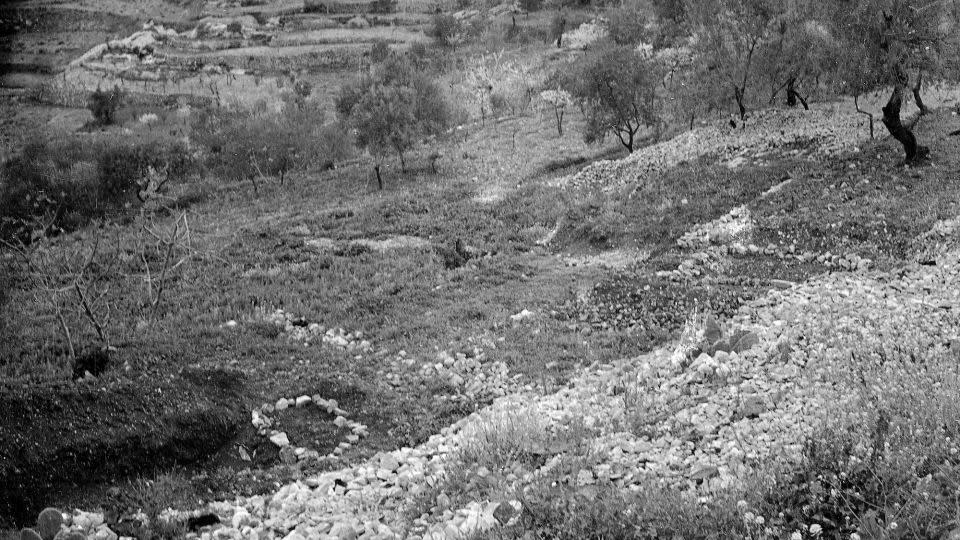
“We thought we were going to be next,” Zarqa, now 88, tells CNN from his home in New Jersey. “My father said, ‘We cannot stay here. They’re going to come and massacre us.’ We had nothing, no weapons, nothing to defend ourselves. That’s the day we became refugees.”
On Wednesday, Zarqa joins millions of Palestinians across the world to mark Nakba Day with protests and community events intended to honor the memory of the Palestinians killed and displaced in 1948 and the brutal war unfolding today in Gaza.
Part of that commemoration includes a commitment to storytelling, Zarqa says, whereby survivors of the Nakba generation continue to share their experiences with younger Palestinians so the dream of liberation and return never dies. He believes it’s the only way to understand the current war and work toward a just and lasting peace in the region.
“My heart is bleeding,” he says softly. “At my age, I’m still dreaming of going back home. Palestine is something that is still implanted in my heart and my body. It’s where I was born. It’s where I have my memories. It’s my country.”
Yearning for home
Zarqa, along with his parents and six siblings, fled Ein Karem on foot, taking very little with them. They walked from village to village, searching for food and sheltering in the homes and garages of kind strangers. The atrocities he witnessed along the way are seared in his memory.
“I saw the most horrific things in my life: women coming in with torn clothes and uncovered heads crying, screaming, saying that the Jews – they weren’t called Israelis at the time – attacked their village and massacred everybody,” Zarqa says.
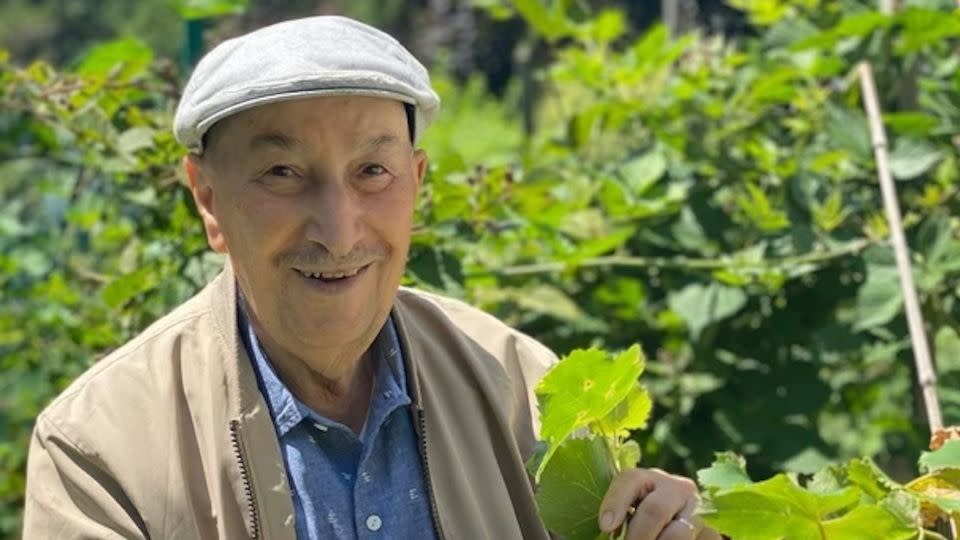
More than 15,000 Palestinians were killed and 531 towns and villages destroyed during al-Nakba, according to the Palestinian Central Bureau of Statistics, an institute of the Palestinian Authority.
Jewish leaders declared independence and the creation of the state of Israel on May 14, sparking a military response from Egypt, Syria and Jordan. The family hoped the 1948 Arab-Israeli War, as it would come to be known, would end in a swift victory for the Arabs.
After several weeks, Zarqa’s family returned to Ein Karem. But when they entered the village, they found it had been ransacked and its residents cast out by Jewish militias, Zarqa says.
With nothing left to salvage, they fled to Jordan to wait out the war, he recalls.
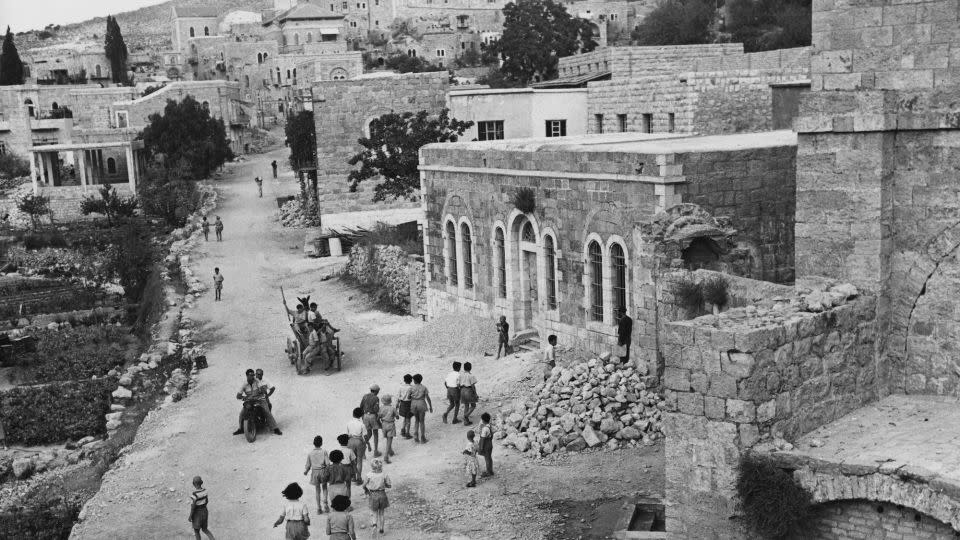
The family initially lived in squalor, surviving off the generosity of strangers and local mosques. They shared a home with other Palestinian refugees in Jabal Al Weibdeh, a neighborhood in Amman, Zarqa says. It had a dirt floor and there were no windows, doors or bathrooms. They often couldn’t shower for months at a time.
By March 1949, Israel had won the war and forbidden the hundreds of thousands of Palestinian refugees who had fled or were expelled from returning to their homes and ancestral lands. Zarqa’s family was among them.
The family began to build a new life in Jordan, one marked by struggle and poverty, as they patiently waited for permission to return to Ein Karem. But it never came, and decades later Zarqa found himself living in the United States – even further from his homeland – trying to raise a small family of his own.
“We made a life in the US, but this still isn’t home. You never forget that you had a house and somebody kicked you out of it,” Zarqa says. “We will never stop wanting to return.”
A responsibility to teach
Neither time nor distance has blurred Zarqa’s memories of Palestine. He has passed onto his four children and eight grandchildren every bittersweet memory of Ein Karem, from its acres of orchards to the hilltop where he could see the mountains and Mediterranean sea in the distance.
Zarqa remembers Ein Karem so vividly that despite his decades of absence, he was able to give his grandson, Zach Matari, who visited the village in 2019, directions over FaceTime to his old home, now in present-day Israel. An Israeli family is living there.
“I remember every inch of my village. If you go there I can tell you there was this apricot tree here, and there was a fig tree there, and that’s the stairs we used to climb,” he says.
Jenan Matari, another one of his grandchildren, is a writer and social media influencer who uses her platform to educate followers about Palestinian history, culture and current events, including the war in Gaza.
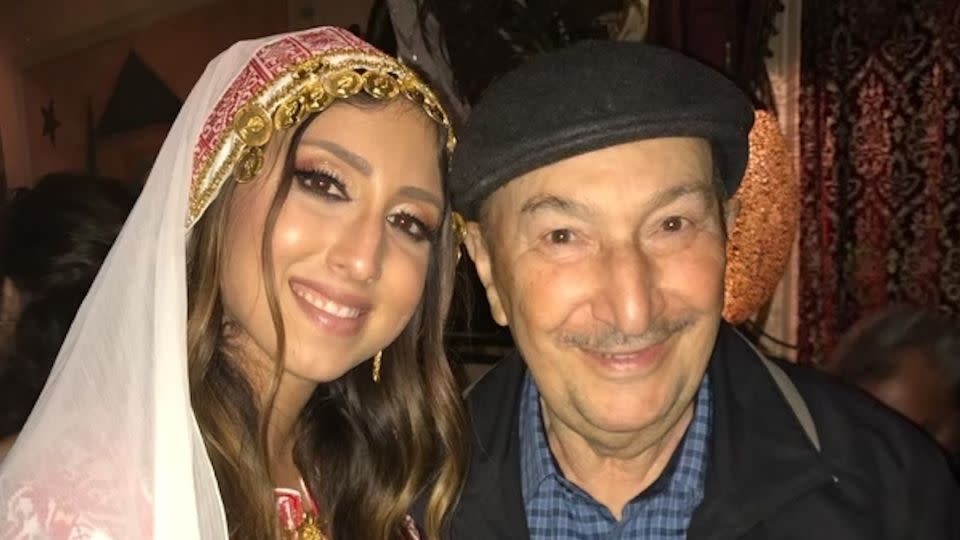
She loves listening to her grandfather’s stories and says her work, which is rooted in his Nakba experience, is a form of resistance. All Palestinians in the diaspora, she says, should use their voices too.
“I get really sad for my grandfather, because if I’m feeling triggered by the things that are happening in Gaza, and I’m feeling this depleted and in so much pain watching this, I can only imagine what it’s doing to him and his generation to watch what they lived through happening again, but on an even greater scale,” Matari, 33, tells CNN.
Talking about al-Nakba isn’t easy, Zarqa confesses. He often pauses mid-sentence or changes the subject when it hurts a bit too much. But he refuses to be silenced by his grief and even invites other Nakba survivors to his home to share their experiences with family, friends and the wider community
Dawud Assad, one of those survivors, lives just 10 miles away. He narrowly survived the Deir Yassin massacre, which he says claimed the lives of 47 family members, including his grandmother and 2-year-old brother.
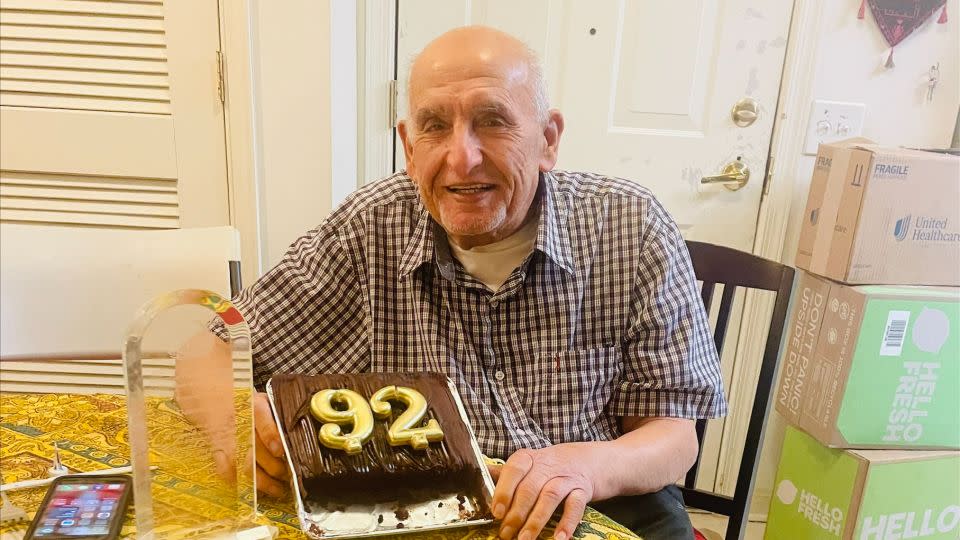
“I was supposed to be dead,” says Assad, who is now 92 and nicknamed Al-shaheed Al-hay, or “the living martyr.” Assad survived by hiding in a shallow trench near his home, crouching and quietly praying for mercy as bullets grazed his hair.
“It did not begin on October 7. What we went through is exactly what we’re seeing now in Gaza and Rafah,” Assad says, referring to Israel’s ongoing war there. Videos of dead children are especially triggering because they remind him of his slain brother.
Israel launched its war in Gaza after Hamas’ brutal attack in Israel on October 7, in which 1,200 people were killed and hundreds of others taken hostage, Israeli officials say.
In the seven months since that attack, Israel’s bombing campaign and ground offensive in Gaza has killed more than 35,000 Palestinians, mostly women and children, according to the Palestinian Ministry of Health. It also has imposed a siege and razed entire communities, rendering nearly 90% of the population displaced and everyone food insecure.
Israel says its military tactics are necessary to defeat Hamas and return the hostages. But in a March report for the United Nations’ Human Rights Council, the UN Special Rapporteur on human rights in the Palestinian territories, Francesca Albanese, said there are “reasonable grounds” to believe Israel is committing the crime of genocide against Palestinians in Gaza. Israel said it “utterly rejects” the report, which it said “brings shame” on the council.
For Zarqa and Assad, the war is reminiscent of the horrors they endured during al-Nakba, and it’s important for them to draw that parallel for young Palestinians in the diaspora, as well as anyone else trying to make sense of the violence.
“Al-Nakba never ended,” Zarqa says.
They point to recent statements from Israeli officials that have alluded to another Nakba through suggestions of mass killing and displacement, or outright calling for it. In a November interview with Israel’s Channel 12 news, Minister of Agriculture Avi Dichter described the war as “the Nakba of Gaza 2023.”
Following Dichter’s comments, Israeli Prime Minister Benjamin Netanyahu reportedly urged ministers to choose their words more carefully. “We must be sensitive,” he said, according to The Times of Israel.
Hope for the future
Zarqa’s heart remains torn between nostalgia and grief as he concedes he may never again see his beloved Palestine, stroll through the quiet streets of Ein Karem or taste its delicious apricots.
But he’s sure his descendants will.
There are some 5.9 million Palestinian refugees worldwide, most of them descendants of that 1948 generation of exiles, according to the United Nations. It is “the world’s longest-standing protracted refugee crisis,” the UN said at a 2023 event marking the 75th anniversary of al-Nakba as it urged a solution grounded in international law.
While some countries, including the United States and United Kingdom, skipped the commemoration after Israel called for a boycott, Zarqa elsewhere sees hope: The anti-war protests taking over city streets and college campuses across the world.
“I am so proud of them,” Zarqa says. “You pass on your stories to your children and then they carry the banner and continue to teach their children, and eventually their own grandchildren.”
“Palestinians will never forget.”

For more CNN news and newsletters create an account at CNN.com
